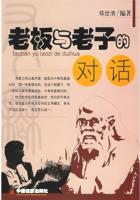For the most part, and especially in these latter ages, persons are culled out for this work from amongst the common people, upon the sole consideration of well-speaking, as if we were to learn grammar from them; and the men so chosen have fair reason, being hired for no other end and pretending to nothing but babble, not to be very solicitous of any part but that, and so, with a fine jingle of words, prepare us a pretty contexture of reports they pick up in the streets. The only good histories are those that have been written themselves who held command in the affairs whereof they write, or who participated in the conduct of them, or, at least, who have had the conduct of others of the same nature. Such are almost all the Greek and Roman histories: for, several eye-witnesses having written of the same subject, in the time when grandeur and learning commonly met in the same person, if there happen to be an error, it must of necessity be a very slight one, and upon a very doubtful incident. What can a man expect from a physician who writes of war, or from a mere scholar, treating of the designs of princes? If we could take notice how scrupulous the Romans were in this, there would need but this example: Asinius Pollio found in the histories of Caesar himself something misreported, a mistake occasioned; either by reason he could not have his eye in all parts of his army at once and had given credit to some individual persons who had not delivered him a very true account; or else, for not having had too perfect notice given him by his lieutenants of what they had done in his absence.--[Suetonius, Life of Caesar, c. 56.]-- By which we may see, whether the inquisition after truth be not very delicate, when a man cannot believe the report of a battle from the knowledge of him who there commanded, nor from the soldiers who were engaged in it, unless, after the method of a judicial inquiry, the witnesses be confronted and objections considered upon the proof of the least detail of every incident. In good earnest the knowledge we have of our own affairs, is much more obscure: but that has been sufficiently handled by Bodin, and according to my own sentiment-- [In the work by jean Bodin, entitled "Methodus ad facilem historiarum cognitionem." 1566.]-- A little to aid the weakness of my memory (so extreme that it has happened to me more than once, to take books again into my hand as new and unseen, that I had carefully read over a few years before, and scribbled with my notes) I have adopted a custom of late, to note at the end of every book (that is, of those I never intend to read again) the time when I made an end on't, and the judgment I had made of it, to the end that this might, at least, represent to me the character and general idea I had conceived of the author in reading it; and I will here transcribe some of those annotations.
I wrote this, some ten years ago, in my Guicciardini (of what language soever my books speak to me in, I always speak to them in my own): "He is a diligent historiographer, from whom, in my opinion, a man may learn the truth of the affairs of his time, as exactly as from any other; in the most of which he was himself also a personal actor, and in honourable command. There is no appearance that he disguised anything, either upon the account of hatred, favour, or vanity; of which the free censures he passes upon the great ones, and particularly those by whom he was advanced and employed in commands of great trust and honour, as Pope Clement VII., give ample testimony. As to that part which he thinks himself the best at, namely, his digressions and discourses, he has indeed some very good, and enriched with fine features; but he is too fond of them: for, to leave nothing unsaid, having a subject so full, ample, almost infinite, he degenerates into pedantry and smacks a little of scholastic prattle. I have also observed this in him, that of so many souls and so many effects, so many motives and so many counsels as he judges, he never attributes any one to virtue, religion, or conscience, as if all these were utterly extinct in the world: and of all the actions, how brave soever in outward show they appear in themselves, he always refers the cause and motive to some vicious occasion or some prospect of profit. It is impossible to imagine but that, amongst such an infinite number of actions as he makes mention of, there must be some one produced by the way of honest reason. No corruption could so universally have infected men that some one would not escape the contagion which makes me suspect that his own taste was vicious, whence it might happen that he judged other men by himself."
In my Philip de Commines there is this written: "You will here find the language sweet and delightful, of a natural simplicity, the narration pure, with the good faith of the author conspicuous therein; free from vanity, when speaking of himself, and from affection or envy, when speaking of others: his discourses and exhortations rather accompanied with zeal and truth, than with any exquisite sufficiency; and, throughout, authority and gravity, which bespeak him a man of good extraction, and brought up in great affairs."
Upon the Memoirs of Monsieur du Bellay I find this: "'Tis always pleasant to read things written by those that have experienced how they ought to be carried on; but withal, it cannot be denied but there is a manifest decadence in these two lords --[Martin du Bellay and Guillaume de Langey, brothers, who jointly wrote the Memoirs.]-- from the freedom and liberty of writing that shine in the elder historians, such as the Sire de Joinville, the familiar companion of St. Louis; Eginhard, chancellor to Charlemagne; and of later date, Philip de Commines. What we have here is rather an apology for King Francis, against the Emperor Charles V., than history. I will not believe that they have falsified anything, as to matter of fact; but they make a common practice of twisting the judgment of events, very often contrary to reason, to our advantage, and of omitting whatsoever is ticklish to be handled in the life of their master; witness the proceedings of Messieurs de Montmorency and de Biron, which are here omitted: nay, so much as the very name of Madame d'Estampes is not here to be found. Secret actions an historian may conceal; but to pass over in silence what all the world knows and things that have drawn after them public and such high consequences, is an inexcusable defect. In fine, whoever has a mind to have a perfect knowledge of King Francis and the events of his reign, let him seek it elsewhere, if my advice may prevail. The only profit a man can reap from these Memoirs is in the special narrative of battles and other exploits of war wherein these gentlemen were personally engaged; in some words and private actions of the princes of their time, and in the treaties and negotiations carried on by the Seigneur de Langey, where there are everywhere things worthy to be known, and discourses above the vulgar strain."















